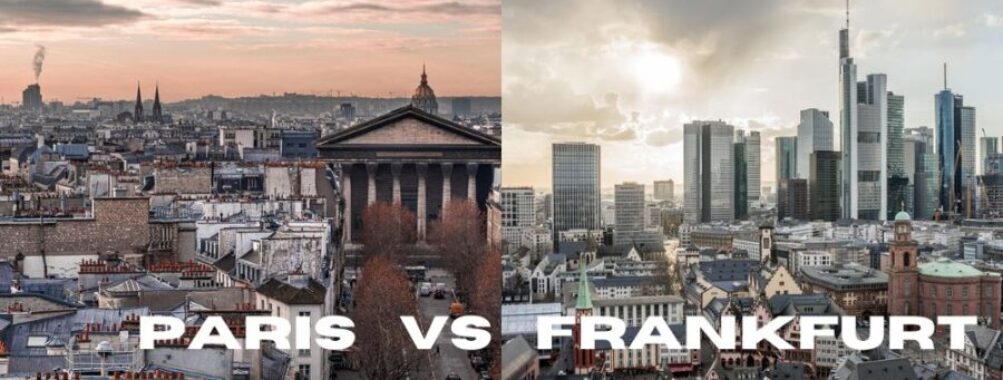
Paris vs Frankfurt: Which European Financial Hub Offers Better Quality of Life in 2025?
Paris and Frankfurt offer two distinct European experiences that draw millions of visitors each year. Paris requires 3-7 days to explore its wealth of attractions, art, and culture. On the other hand, Frankfurt can be fully experienced in just 1-3 days, making it perfect for shorter trips or business travelers.
These cities represent different sides of European life. Paris shines with iconic landmarks, world-class museums, and charming neighborhoods filled with cafes and boutiques. Meanwhile, Frankfurt stands as Germany‘s financial powerhouse, mixing modern skyscrapers with historic districts and excellent public transportation.
Money-conscious travelers might prefer Frankfurt, where living costs run about 7% lower than Paris. The German city offers cheaper rent, groceries, and general expenses, though restaurant prices tend to be slightly higher than its French counterpart.
Contents
- Geographical Overview
- Economic Landscape
- Financial Centers
- Cost of Living Analysis
- Employment Opportunities
- Transportation Networks
- Public Transit Systems
- Air Travel Connectivity
- Commuting Comparisons
- Cultural Treasures
- World-Class Museums
- Historical Old Towns
- Cultural Festivals
- Education and Research
- Higher Education Institutions
- International Student Life
- Language and Integration
- Lifestyle and Living
- Culinary Experiences
- Sports and Recreation
- Utility Costs
- Healthcare Services
- Entertainment and Nightlife
- Nightclub Scenes
- Live Music Venues
- Theater and Performance Arts
- Hidden Gems and Unique Experiences
- Off-the-Beaten-Path Attractions
- Local Markets and Shops
- Green Spaces and Parks
- Frequently Asked Questions
- What cultural differences should I expect when deciding between a visit to Paris or Frankfurt?
- How do travel costs compare between Paris and Frankfurt for a typical tourist?
- What are the unique attractions in Frankfurt that might sway someone to choose it over Paris?
- For travelers interested in culinary experiences, how do the dining options in Paris and Frankfurt differ?
- Can you describe the experience of traveling by train between Paris and Frankfurt?
- What factors might influence a business traveler to select Paris or Frankfurt for their next trip?
- More Travel Guides
Geographical Overview
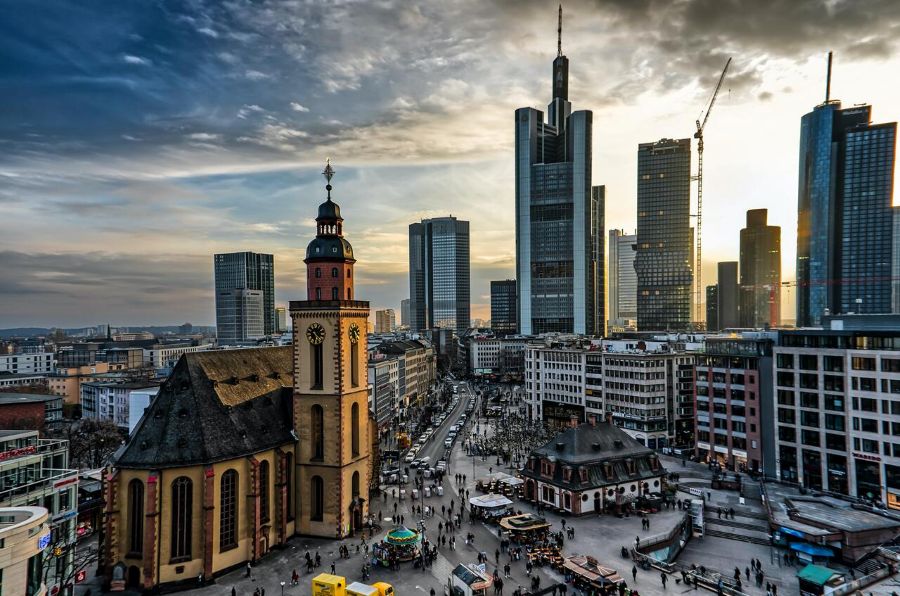
Paris and Frankfurt am Main sit at very different spots on the European map. Frankfurt rests in the heart of Germany, while Paris shines as the centerpiece of northern France.
Frankfurt spreads across 248 square kilometers, making it more than twice the size of Paris’s compact 105 square kilometers. The Main River flows through Frankfurt’s center, splitting the city into north and south sections.
Both cities hold prime spots for European travel. Frankfurt’s central location puts it within easy reach of major cities – about 600 km to Paris, 640 km to London, and 670 km to Milan. Its position makes it a crucial transport hub.
The Seine River winds through Paris like a ribbon, creating the famous Left Bank and Right Bank areas. The city’s layout features 20 distinct districts, called arrondissements, arranged in a spiral pattern.
Population differences between these cities are striking. Paris packs in over 2.2 million residents in its smaller space, while Frankfurt houses about 700,000 people in its larger area. This means Paris feels much more crowded, with roughly 21,000 people per square kilometer.
The Zeilstraße forms Frankfurt’s busy commercial heart, home to the massive Zeilgalerie shopping complex. Meanwhile, Paris centers around the 1st arrondissement, where you’ll find landmarks like the Louvre and Tuileries Garden.
Economic Landscape
Paris and Frankfurt stand as two distinct economic powerhouses in Europe, each offering unique advantages for residents and businesses. The cities show notable differences in their financial sectors, living expenses, and job markets.
Financial Centers

Frankfurt serves as Germany’s primary financial hub, hosting the European Central Bank and numerous international banks. Its compact financial district, known as “Mainhattan,” features a cluster of skyscrapers housing major financial institutions.
Paris maintains its position as a global financial center with a more diverse economic base. The La Défense district hosts many corporate headquarters and financial firms.
Both cities compete for financial services previously based in London after Brexit. Frankfurt’s specialized focus on banking gives it an edge in certain areas, while Paris offers a broader range of financial services.
Cost of Living Analysis

Frankfurt proves more affordable than Paris across most spending categories. Rent costs 18.5% less in Frankfurt compared to Paris.
Grocery prices in Frankfurt are nearly 19% lower than Paris, making daily essentials more budget-friendly.
Restaurant dining shows similar prices between the cities, with Frankfurt being slightly more expensive by 5%.
The average salary in Frankfurt stretches further, covering about 2 months of expenses compared to 1.4 months in Paris.
Employment Opportunities

Frankfurt’s job market excels in finance and banking sectors. The city attracts professionals with its international business environment and strong presence of multinational corporations.
Many positions in Frankfurt require English language skills, making it accessible to international workers.
Paris offers a more diverse job market spanning technology, fashion, tourism, and creative industries. The city provides opportunities in both traditional and emerging sectors.
Both cities welcome skilled foreign workers, though Frankfurt often has more openings in the financial sector specifically.
Transportation Networks
Both Paris and Frankfurt offer extensive transit systems that connect their cities locally and internationally. The two cities take different approaches to moving people efficiently through their urban cores.
Public Transit Systems

Paris runs a complex network of metro lines and RER trains throughout the city. The metro system covers most neighborhoods with frequent service and clear maps. The RER regional trains link central Paris to suburbs and nearby towns.
Frankfurt’s public transit focuses on the S-Bahn suburban rail and U-Bahn metro systems. The S-Bahn connects the city center to the wider Rhine-Main region. Trains run frequently during peak hours.
Both cities use integrated ticketing that lets passengers transfer between different types of transit. Paris has more metro lines and stations than Frankfurt, making it easier to reach most destinations by train.
Air Travel Connectivity

Frankfurt Airport serves as one of Europe’s major aviation hubs. The airport handles over 60 million passengers yearly and offers direct flights to most global destinations.
Paris splits air traffic between Charles de Gaulle and Orly airports. Charles de Gaulle ranks as Europe’s second-busiest airport after London Heathrow. The two Paris airports together serve more passengers than Frankfurt.
Frankfurt Airport connects directly to the city’s main train station in 15 minutes. Paris airports take longer to reach but offer multiple transit options including express trains and buses.
Commuting Comparisons
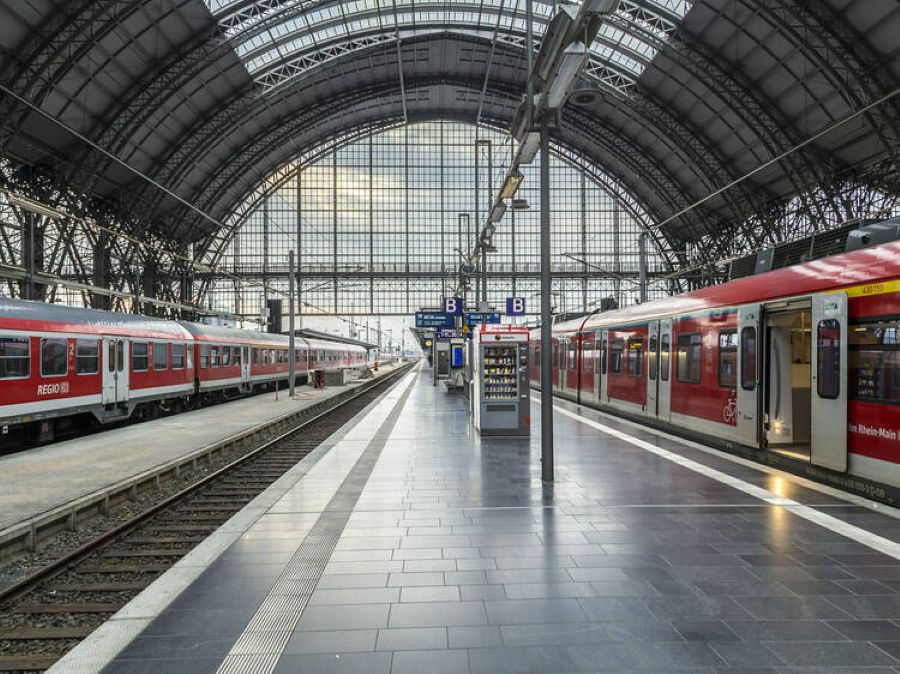
Frankfurt residents spend less time commuting compared to Parisians. The average Frankfurt commute takes about 30 minutes each way.
Paris commute times often stretch beyond 45 minutes due to the city’s larger size and population. Rush hour congestion affects both the roads and public transit systems.
Frankfurt’s compact size makes biking and walking viable options for many trips. Paris encourages cycling through bike share programs and dedicated lanes, but longer distances make this impractical for many commuters.
The Paris transit network carries more daily passengers than Frankfurt’s system. Yet Frankfurt’s transit runs more efficiently with fewer delays during peak times.
Cultural Treasures
Paris and Frankfurt both offer rich cultural experiences, with world-class museums, historic city centers, and vibrant festivals that celebrate local traditions. Each city shows its unique character through art, architecture, and community celebrations.
World-Class Museums
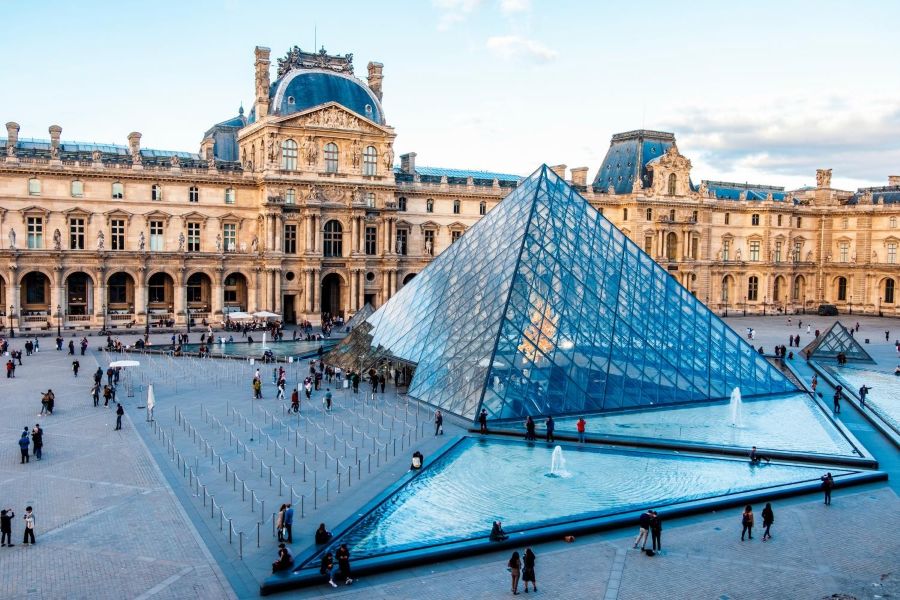
The Louvre stands as Paris’s crown jewel, housing over 380,000 artworks including the famous Mona Lisa. The city’s museum scene extends to the Musée d’Orsay, home to impressionist masterpieces, and the modern Centre Pompidou.
Frankfurt’s Städel Museum shines with its collection spanning 700 years of European art. The museum displays works from old masters to contemporary artists, making it one of Germany’s most important cultural institutions.
The Museum für Moderne Kunst in Frankfurt offers cutting-edge exhibitions in its unique triangular building. Art lovers often spend hours exploring its innovative installations and temporary exhibits.
Historical Old Towns
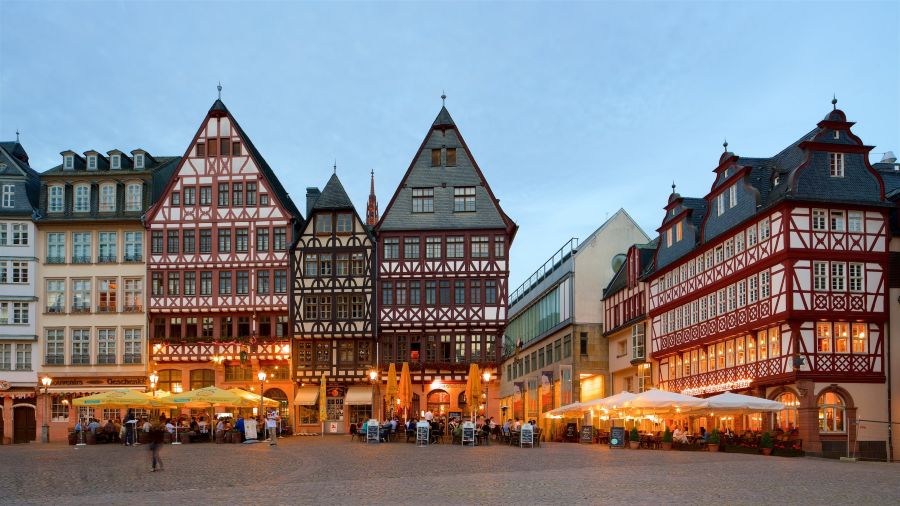
Paris’s Le Marais district preserves medieval architecture and narrow cobblestone streets. Visitors can explore centuries-old mansions, hidden courtyards, and traditional bakeries in this historic neighborhood.
Frankfurt’s Römerberg square features stunning medieval buildings and half-timbered houses. The area was carefully reconstructed after WWII to maintain its historic charm.
The contrast between old and new creates a unique atmosphere in both cities. Paris’s historic districts blend seamlessly with modern areas, while Frankfurt’s old town stands against a backdrop of sleek skyscrapers.
Cultural Festivals

Paris lights up during Nuit Blanche, when art installations transform the city for one night each October. The city also hosts the Paris Jazz Festival and Fête de la Musique, filling streets with live performances.
Frankfurt’s Museumsufer Festival brings art lovers together along the Main River. Over 2 million visitors enjoy exhibitions, music, and food during this annual celebration.
The Frankfurt Book Fair, the world’s largest trade fair for books, attracts publishers and readers from across the globe. This event showcases the city’s role as a cultural meeting point.
Education and Research
Both cities feature strong educational systems and world-class research facilities. Paris leads with a larger number of prestigious universities, while Frankfurt offers unique opportunities for international students.
Higher Education Institutions
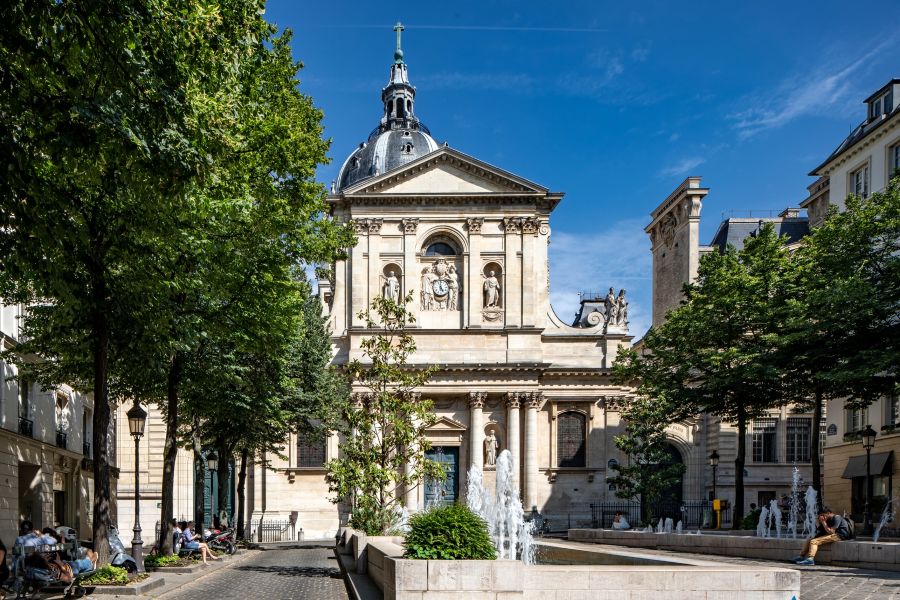
Paris stands out with over 20 universities and numerous specialized schools. The Sorbonne and Sciences Po are among the most famous institutions in France’s capital. These schools attract thousands of international students each year.
Frankfurt has fewer universities but maintains high educational standards. Goethe University, with its 48,000 students, serves as the city’s main academic hub. The Frankfurt School of Finance & Management adds to the city’s strong focus on business education.
International Student Life

Student life differs significantly between these cities. Paris offers rich cultural experiences and diverse student communities, with many English-taught programs available. Students can enjoy cafés, museums, and historic libraries.
Frankfurt provides a more affordable student experience. Many German universities charge no tuition fees, even for international students. The city’s smaller size makes it easier to navigate and find student housing.
Student organizations in both cities help newcomers adjust:
- Cultural exchange groups
- Language tandems
- Sports clubs
- Academic societies
Language and Integration

Students in Paris need basic French skills for daily life. Many master’s programs are taught in English, but knowing French helps with social integration and job opportunities.
Frankfurt’s universities offer extensive German language courses for international students. The city’s international business environment means English is widely used, making it easier for newcomers to adapt.
Integration support includes:
- Free language courses
- Cultural orientation programs
- Student mentoring
- International student offices
Lifestyle and Living
Life in Paris and Frankfurt offers distinct experiences in food, activities, and daily necessities. Living costs differ between these cities, with each offering unique advantages for residents.
Culinary Experiences

Paris shines with its world-famous food scene. The city boasts over 44,000 restaurants, from local bistros to Michelin-starred establishments. A typical dinner for two at a neighborhood pub costs €51.
Frankfurt’s food scene blends German tradition with international influence. Local specialties include green sauce and apple wine. Restaurant prices run about 6% lower than Paris, with a comparable dinner costing €52.
Both cities have excellent outdoor markets. Paris’s Marché Bastille and Frankfurt’s Kleinmarkthalle let you sample fresh local produce and regional specialties.
Sports and Recreation

Frankfurt’s riverside location makes it perfect for outdoor activities. The city maintains extensive cycling paths and walking trails along the Main River.
Paris offers countless parks and green spaces. The Bois de Boulogne and Bois de Vincennes provide spots for jogging, cycling, and picnics.
Public pools cost less in Frankfurt than Paris. Many sports clubs in both cities welcome international members.
Utility Costs

Frankfurt’s utility costs run lower than Paris. Basic utilities for an 85m² apartment in Frankfurt average €150 monthly.
Paris residents typically pay more for electricity and heating. The older buildings often have less efficient systems.
Internet services cost about the same in both cities. Most areas have access to high-speed fiber connections.
Healthcare Services
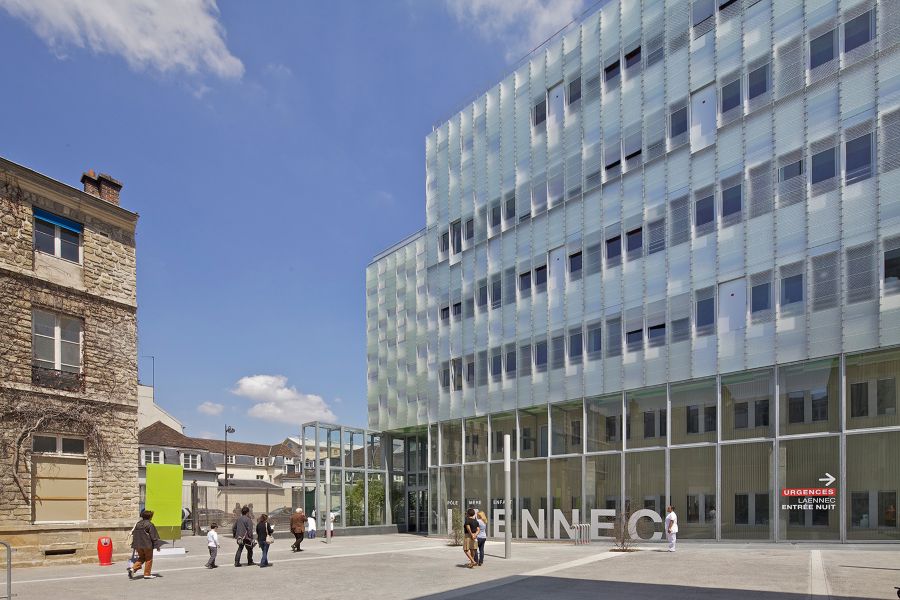
Both cities provide top-tier medical care. Frankfurt has several international hospitals with English-speaking staff.
Paris features renowned medical facilities like the American Hospital of Paris. Wait times for specialists tend to be shorter in Frankfurt.
Public health insurance covers most medical needs in both cities. Private insurance options are available but cost more in Paris.
Entertainment and Nightlife
Paris and Frankfurt offer distinct entertainment scenes, with Paris known for its glamorous cabaret shows and diverse nightlife, while Frankfurt delivers a modern clubbing experience shaped by its international business culture.
Nightclub Scenes

Frankfurt’s club scene thrives around the Bahnhofsviertel district, where electronic music rules the night. The city’s mix of bankers and students creates an energetic vibe at spots like Gibson and Tanzhaus West. Many clubs stay open until sunrise, letting you dance till dawn.
Paris spreads its nightclub options across several neighborhoods. The Oberkampf and Bastille areas pack in trendy spots that play everything from techno to French pop. Le Baron and Concrete stand out as must-visit venues for serious clubbers.
Dance floors in both cities get busy after midnight. Frankfurt’s clubs tend to be more casual and welcoming, while Paris clubs often have stricter door policies and dress codes.
Live Music Venues

Paris shines with its diverse music venues. The historic Olympia Hall hosts major international acts, while tiny jazz clubs in Saint-Germain-des-Prés keep the city’s jazz legacy alive. Street musicians add charm to popular areas like Montmartre.
Frankfurt’s music scene centers around larger venues like the Alte Oper and smaller spots in Sachsenhausen. Jazz clubs dot the city center, and indie bands play regularly at intimate venues like Nachtleben.
Both cities support classical music with world-class orchestras and opera houses. The Paris Opera and Frankfurt’s Alte Oper present stunning performances throughout the year.
Theater and Performance Arts
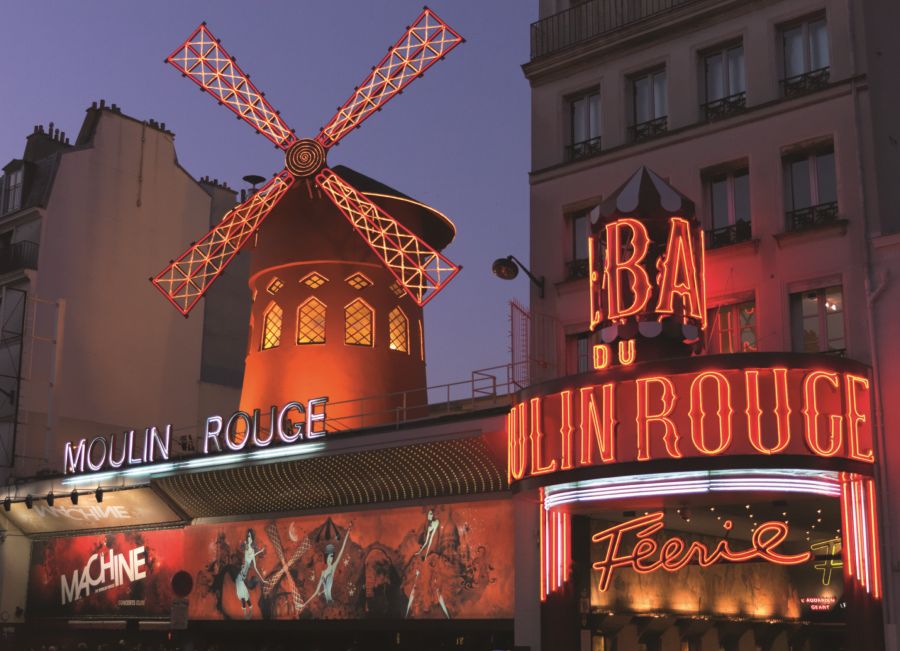
Paris leads with iconic venues like the Moulin Rouge and Lido, where cabaret shows dazzle tourists nightly. The city maintains over 150 theaters, mixing classic French plays with modern productions.
The English Theater in Frankfurt, Europe’s largest English-speaking theater, brings Broadway-style shows to Germany. Local theaters present both German and international works.
Street performers entertain crowds near Paris’s Centre Pompidou and along the Seine. Frankfurt’s street art scene comes alive during summer festivals, with performers taking over the Römerberg square.
Hidden Gems and Unique Experiences
Both Paris and Frankfurt hide amazing secrets beyond their famous landmarks. These cities reward curious travelers who venture away from tourist hotspots with authentic local experiences, charming markets, and peaceful green spaces.
Off-the-Beaten-Path Attractions

The Bockenheimer Warte subway station in Frankfurt features a surreal entrance designed to look like a train car crashing through the sidewalk. It’s a perfect spot for unique photos.
Frankfurt’s Verkehrsmuseum showcases the city’s transit history with vintage trams and buses. Kids love climbing aboard the old vehicles.
In Paris, the hidden Petite Ceinture railway offers a peaceful walk along abandoned tracks covered in wild flowers. The 23rd arrondissement’s Street Art District features colorful murals away from the crowds.
The quirky Musée des Arts Forains in Paris houses antique carnival rides and games. Visitors can actually ride some of the restored carousels.
Local Markets and Shops
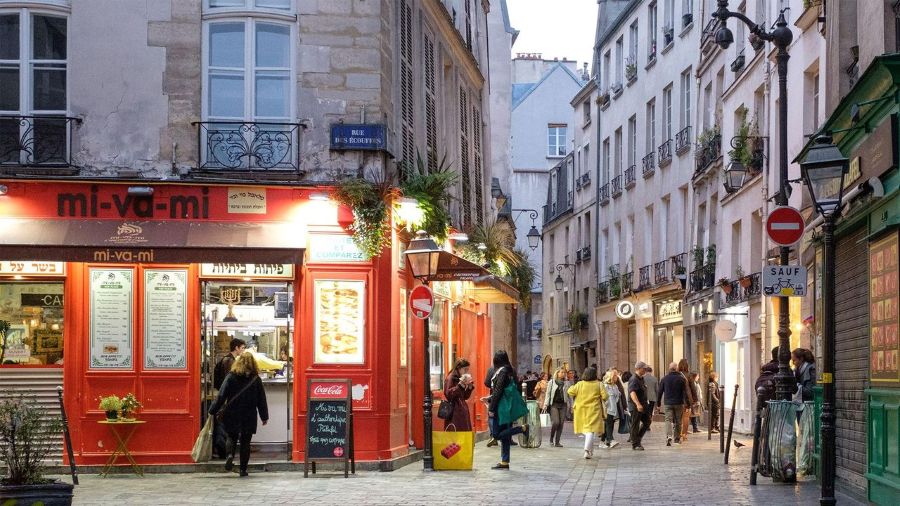
Frankfurt’s Kleinmarkthalle buzzes with over 60 vendors selling regional specialties. The second floor wine bar lets shoppers sample local wines while watching the market action below.
The covered passages of Paris hide charming specialty shops. Passage des Panoramas features vintage postcard dealers and stamp collectors.
Sachsenhausen in Frankfurt charms visitors with traditional apple wine taverns and small boutiques in its cobblestone streets.
Green Spaces and Parks

The Palmengarten in Frankfurt showcases exotic plants in beautiful Victorian greenhouses. Its peaceful paths wind through themed gardens and a butterfly house.
Paris’s Parc des Buttes-Chaumont features dramatic cliffs, waterfalls, and a Temple of Sibylle perched high above a lake. Local families picnic on its grassy slopes.
The Chinese Garden in Frankfurt’s Bethmann Park provides a serene escape. Its moon gate and pavilions transport visitors to East Asia.
Frequently Asked Questions
Travelers choosing between these two European cities face decisions about culture, costs, dining, and transportation that shape their overall experience. Both destinations offer distinct advantages for different types of visitors.
What cultural differences should I expect when deciding between a visit to Paris or Frankfurt?
Paris embraces a more laid-back lifestyle where long meals and artistic pursuits take center stage. The French capital values tradition and style in daily life.
Frankfurt shows a more fast-paced, business-minded culture. Germans tend to be direct in communication and value punctuality.
Street life differs greatly between the cities. Paris sidewalks buzz with café culture and people-watching. Frankfurt’s streets clear out after business hours except in social hubs like Sachsenhausen.
How do travel costs compare between Paris and Frankfurt for a typical tourist?
Hotel accommodations cost about 20-30% more in Paris than Frankfurt. A mid-range hotel room in Paris runs €200-300 per night versus €150-200 in Frankfurt.
Food costs less in Frankfurt, with meals averaging €15-25 compared to €25-40 in Paris. Public transport passes are cheaper in Frankfurt too.
Museum entry fees cost more in Paris. The Louvre charges €17 while Frankfurt’s Städel Museum costs €12.
What are the unique attractions in Frankfurt that might sway someone to choose it over Paris?
The Main Tower offers stunning city views from its observation deck. The building represents Frankfurt’s modern architectural heritage.
The Römerberg medieval square transports visitors back in time with its restored timber-frame buildings and weekly markets.
Frankfurt’s Museum Mile features world-class collections. The Städel Museum houses European art spanning seven centuries.
For travelers interested in culinary experiences, how do the dining options in Paris and Frankfurt differ?
Paris excels in fine dining and pastries. Local bistros serve classic French dishes like coq au vin and beef bourguignon.
Frankfurt specializes in hearty German fare. The city’s signature green sauce and apple wine provide unique local tastes.
International cuisine thrives in both cities. Frankfurt’s large expat community brings diverse food options at lower prices than Paris.
Can you describe the experience of traveling by train between Paris and Frankfurt?
The journey takes about 4 hours on high-speed trains. Trains depart several times daily from Frankfurt Main Station to Paris Est.
Scenic views include French countryside and German forests. First-class tickets include meal service and wider seats.
Book tickets 3-4 months ahead for the best prices. The route serves as a popular connection between these major European hubs.
What factors might influence a business traveler to select Paris or Frankfurt for their next trip?
Frankfurt offers excellent transport links and efficient business services. The city’s compact size makes getting to meetings quick and easy. English skills are more widespread in Frankfurt’s business district. The city caters to international commerce with multilingual services.
Paris provides more options for client entertainment and after-hours activities. The city’s prestige adds value to business meetings.



